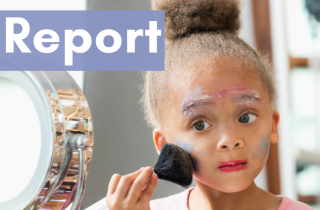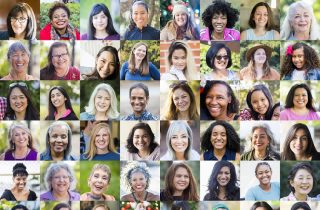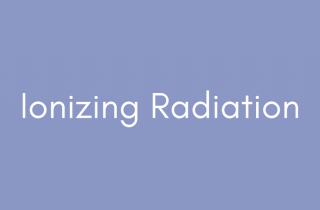Behind the Science: Ep. 3 Equity, stress, and firefighters
Featuring Rachel Morello-Frosch, PhD, MPH
BCPP Science Advisory Panel Member and Professor, University of California, Berkeley School of Public Health & the Department of Environmental Science, Policy, and Management
Episode 3.1: Inequity, stress, firefighters, and toxic trespass
Explore topics like:
- How does social inequity make the environment worse for everybody?
- Do firefighters face an elevated risk of breast cancer?
- How does stress impact your health?
- How do disparities in exposures to environmental hazards relate to breast cancer?
- What is toxic trespass?
- What can I do?
Video Transcription
[00:00:04] I had always been interested in questions of social justice. As a college student and the intersection between social justice and environmental health. My name is Rachel Morello Frosh and I am a professor at UC Berkeley School of Public Health. I’m known for doing work on social determinants of environmental health disparities. And what kinds of social drivers affect how different population groups come in contact with chemicals, air pollution and other environmental hazards. Firefighting has traditionally been a predominately until recently a white male dominated occupation. I had worked at the civil rights organization that had worked so hard to get the consent decree so that women could get into the fire department shortly after college. So fast forward several decades later, I get to witness how much progress had been made in terms of the number of women within the San Francisco Fire Department. But now they are facing a new challenge. This challenge of breast cancer in the workplace.
[00:01:06] It posed a challenge to me as a scientist to figure out how can we study it together in a way that’s meaningful to them and that will get us actionable results that people could do something about.
[00:01:18] Now, in the field of environmental justice research, for a long time, the question was studying how certain populations are disproportionately exposed to environmental hazards. For example, environmental justice advocates have always said hazardous waste facilities, industrial facilities are disproportionately located where they live compared to their white, wealthier counterparts.
[00:01:40] In terms of neighborhood, white people who live in more segregated cities are better off than their people of color counterparts within those cities. But those white folks are much worse off than their white counterparts who live in less segregated cities. So there’s something about segregation that makes air quality worse for everybody, because in more segregated cities, people are more physically separated from the things that they need to access every day, their jobs, basic services and things like that. They have to drive longer distances and that makes the regional air quality worse off for everyone. Given the short timeframe in which these rates and new cases have changed, our gene pool doesn’t change that quickly. So I’m not convinced that genes really explains these patterns that we’re seeing. So to what extent are other things like chronic exposure to psychosocial stressors, like poverty, like stress of everyday encounters with discrimination that you might not even realize you have, but you’re screwed because you’re so used to dealing with it every day that it starts to degrade your immune system in ways that might make you more vulnerable to things that might cause cancer.
[00:02:52] And then to what extent to disparities, exposures to environmental hazards like environmental chemicals and other things that might play out by race and class.
[00:03:00] Explain these observed differences in the patterns that we see in risk of getting breast cancer and also risk of dying of it. I have had breast cancer, so I started graduate school in the same year that I started my treatment for breast cancer, although I never planned to become a breast cancer researcher. That was not going to be the focus of my work, but I think breast cancer research kind of found its way back to me. When you are affected by a disease like breast cancer, you’re asking yourself, how is it that I missed testicle anomaly? It’s very unusual to get this kind of a disease at such a young age. Are there things that happen in my life or that I was exposed to that might explain why I got the disease at such a young age? It’s no longer just theoretical, but you’re also kind of thinking about this at a very sort of personal level as you go through your education. We are exposed to a huge array of environmental chemicals without our permission and increasing. We’re seeing how that affects our health and how it affects the health of our children.
[00:04:07] Environmental policymaking needs to get better so that we have more agency in preventing that form of toxic trespass and not having to be exposed to these things without our permission.
[00:04:19] It’s unfortunate that we are in this situation where there’s a proliferation of environmental chemicals in everyday products that we come encounter with in the things that we use our bodies and the things that we use in our homes, in our workplaces that we have no control over as individuals, little individual actions we can take. But what it really boils down to is environmental policymaking and regulation has failed us and we’re still subjected everyday to toxic trespass. And that to me is a call for arms.
[00:04:50] And what we want to do in terms of leveraging the results of our scientific work to push for policy change and end toxic.
[00:04:59] My end goal is to have policy that actually protects people from unsafe chemicals in everyday products so that we can be assured that the ingredients have been adequately tested and that it doesn’t harm health, or that if it does, we can make informed decisions about whether or not we want to use the product. My second end goal is to finally do something and be a leader in climate change. I want people to get involved, whether that means joining an environmental organization or writing a letter to your representative or educating yourself about what’s going on and just learn about some of the things that are working well out there and try and get involved in them.
[00:05:52] If you want to sort of take the next step is you can get involved in environmental policy campaigns to improve chemicals policy. These are what we know are going on in your community that you might want to connect with, or it can be as simple as making sure you’re registered to vote.
[00:06:09] And when you’re evaluating candidates, what’s their environmental record? What do they think about chemicals policy?
[00:06:14] Maybe that should inform the decision that you make about who you vote for in the next time you go to the ballot box.
Episode 3 Issue Focus: Female firefighters & breast cancer
Find out how and why firefighters are at the frontlines of chemical exposures and climate change.
Video Transcription
[00:00:15] Firefighting has traditionally been a predominately until recently a white male dominated occupation and women and people of color over several decades worked very hard to be able to have the same opportunities to enter into such an honorable and also well-paid profession. I had worked at the civil rights organization that had worked so hard to get the consent decree so that women could get into the fire department shortly after college. So fast forward several decades later, I get a call from United Fire Service Women. I get to witness how much progress had been made in terms of the number of women within the San Francisco Fire Department. But now they are facing a new challenge, this challenge of breast cancer in the workplace.
[00:00:59] I think breast cancer has become an emerging issue that is affecting women in the fire service. And yet it has not been studied very much, in part because until recently, women didn’t have critical mass, if you will, within the fire service.
[00:01:13] It sort of posed a challenge to me as a scientist to figure out how can we get at this question, how how can we study it and how can we study it together in a way that’s meaningful to them and that will get us actionable results that people could do something about now.
[00:01:27] Firefighters are really at the front lines and forcing us to really think about the connections between issues that we care about, both in terms of the facts of environmental chemicals and our ubiquitous exposures to them and products that we use everyday and how we encounter them in our jobs. But then firefighters are increasingly at the frontlines of how we’re being impacted every day by climate change as we see the increasing frequency and intensity of these wildland fires and how it impacts their health. But we’re also just starting to see how it’s impacting everybody health.
Donate
Support BCPP’s work to prevent breast cancer and save lives by uncovering the hidden scientific links between breast cancer and the environment.




